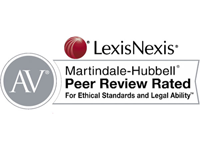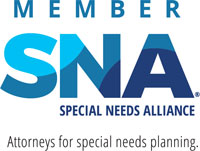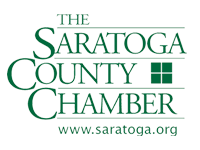[/db_pb_fullwidth_slider]
At the risk of sounding trite, the coronavirus pandemic has caused most of us to consider whether we are truly prepared for the unexpected. As we read the news and experience the changes in the
patterns of our day-to-day lives, we cannot help but reflect.
When we consult with parents and other caregivers of individuals with disabilities, and especially older clients who are seeing the beginning of the end of their advocacy efforts, we often ask the question, “Are you really ready?” In a sadly ironic twist, the pandemic has made it easier for us to ask this difficult question.
We aren’t asking about supplemental needs trusts, powers of attorney, or life and long term care insurance. Of course those things are critically important and must be part of the conversation in the development of a comprehensive special needs estate plan. Instead, we are looking to encourage the broader conversation about how life will look for a child or other family member when the parent or aging caregiver is gone. These conversations are often awkward and uncomfortable, as they compel parents to acknowledge their own mortality and to honestly assess the willingness and capabilities of other family members to step in.
There is no single and simple way to approach the topic, and a full airing requires instinct, expertise and experience in living with disability. Each conversation is unique, and each solution will depend on things like family composition, access to disability service providers, and private resources. But all solutions will involve some combination of the three components discussed below, and understanding them will help families work through this difficult but essential part of the planning process.
Increasing Medicaid Funded Supports
The system that supports our family members with disabilities is a Medicaid funded service delivery system, and will be for the foreseeable future. We develop special needs estate plans to ensure continuing access to Medicaid and other benefit programs.
We have been inspired by the efforts of disability service providers during this pandemic. These “essential workers” have continued to provide communication, support and advocacy in community residences, health care facilities, and in private homes. At the end of this newsletter we recognize the efforts of one of our local disability service providers, Wildwood Programs, which has been particularly proactive and capable during the crisis.
And yet when we work with clients to develop future plans of advocacy, we have to be realistic about the ability of these programs to fill the gap left when parents are no longer available. Continued political pressure to limit Medicaid expenses means less dollars available to fund programs and compensate qualified caregivers, exacerbating the problems of high staff turnover and limited access to services in outlying communities. We do not expect this to change any time soon, and the financial hit that every state will take as a result of the pandemic will only put more pressure on lawmakers to reduce Medicaid spending.
To be clear, we in New York are lucky to live in a state that has generously funded services for individuals with disabilities. We encourage clients to pursue these programs, and once eligible, we work with our clients to maximize those services and supports. But we have to recognize that Medicaid funded programs are only a part – and often a diminishing part – of a future plan of advocacy.
Increase in Informal Supports
Some families are blessed with a deep bench. Siblings and other family members live locally and are willing and able to share the responsibilities of oversight, advocacy and companionship that were being provided by a parent. In our experience, this is the exception rather than the rule. In most cases family members – even if they live locally – have busy professional and personal lives, and while they are willing to help, they cannot dedicate the same amount of time and attention as a parent.
The first step is to have an open, honest and realistic discussion with those family members who might be willing to step in. This is not indentured servitude, and there is no benefit in securing promises that will go unfulfilled when the point of crisis arrives.
Fundamental to this discussion is an understanding of the different roles that family members might play. What is the difference between a trustee and a guardian? An agent under power of attorney or an agent under health care proxy? Can one person serve in two capacities? Should she? There is a lot of information about this on the internet and circulating through the grapevine, much of it incorrect. By understanding the requirements of each position, clients can identify which family members might be successful in certain roles.
These must be honest conversations, especially when discussing the amount of time that a family member can reasonably be expected to give. We like to get down to the granular level: “How many hours in a given week or month can the family member offer without sacrificing her other professional and personal commitments?” If the answer is one hour per month, then we wouldn’t recommend having that family member serve as agent under power of attorney for an adult child with a disability who works, who needs his bills paid, and who needs his checkbook balanced on a regular basis.
Parents need to answer the same question: “How many hours each week do you spend advocating and providing oversight for your son or daughter?” An honest assessment will often cause parents to realize that it is unrealistic to expect a sibling or other family member to shoulder the same responsibility.
These can be awkward conversations because family members do not want to disappoint or seem insensitive. In our practice, we offer to speak with siblings and other family members privately and without the parent present. This allows for a more open and candid conversation, and ultimately leads to a more reliable fiduciary appointment.
Private Advocacy and Support
Understanding that Medicaid funded programs will provide a base level of services, and having identified the amount of support that we can realistically expect from siblings and other family members, we can then begin to estimate areas where privately funded, supplemental supports will be necessary. This can be an important part of the special needs estate planning process, as it helps families think about the allocation of family assets between a family member with a disability and other beneficiaries.
Some variables are easier to estimate than others. If a parent of a working adult with a disability is subsidizing the child’s rent, the parent can calculate how much might be needed over the child’s reasonable life expectancy to continue providing that level of support. Entertainment budgets and transportation subsidies are similarly easy to quantify and estimate. Circumstances can change, but this exercise is an important one as it helps families make educated guesses in the planning process.
Other variables are more difficult to predict, including the one that we think will represent the most significant expense over the life of a child with a disability: privately paid advocacy and oversight. If Medicaid funded supports will be less generous over time, and if informal supports provided by siblings and other family members cannot replace the advocacy provided by a deceased parent, then it is reasonable to expect that funds placed in a supplemental needs trust for a family member with a disability will have to be used to hire professional advocates to fill the gap.
This is not a new concept. “Life Care Plans” prepared for personal injury or medical malpractice litigation estimate the ongoing costs of care managers and related professionals when calculating damages resulting from an injury. Geriatric care professionals are regularly hired by adult children to communicate with existing care providers, supplement services, and provide a second set of eyes on the level of care being provided to an aging parent.
The same concept applies to advocacy for younger individuals with disabilities. The primary difference is that the cost of this advocacy has been largely hidden because parents have provided this service tirelessly and without charge. As parents and primary caregivers age, the need for private advocacy increases.
We recognized this trend in our own practice some time ago, and we created an affiliated company, Adirondack Case Management & Advocacy, LLC (www.adkcma.com) as a result of the increasing demand for these services. Adirondack staff help families develop future plans of advocacy, navigate the service delivery system, manage eligibility for government benefits, and supplement services when Medicaid-funded and family supports are not available.
Something Different, But Still Something Good
The best plans of advocacy are developed when parents are still in the driver’s seat and able to guide the process, allowing siblings and other family members to participate at their own pace. Sometimes a family member is unwilling to engage at even this preliminary stage. That’s OK, because the parent will have time to rethink that individual’s role in the plan.
More often than not, parents are pleasantly surprised to learn that family members are indeed willing and eager to help. They simply needed straightforward answers about what would be expected of them.
We know that nothing can replace the tireless and uncompromising advocacy of a parent. But with good planning, frank discussion, and a recognition that government programs will only provide part of the solution, families can build a different – but otherwise successful – future plan of advocacy for a family member with a disability.
As with all good planning, the hardest step is often the first one. We would be pleased to help you begin the conversation.
Wildwood Programs Family Forum and Caring/Sharing Initiative
Wildwood Programs, Inc. is one of the most highly regarded and well respected disability service providers in the greater Capital Region. Wildwood provides supports and services to people of all ages with developmental disabilities, complex learning disabilities and autism spectrum disorders. Wildwood was created in 1967 when a group of parents found that their children did not fit neatly into existing programs. What began as a program for a handful of pre- schoolers has grown into an organization that provides comprehensive supports and services to over 1000 people and families every year. Children as young as three and adults enjoying their senior years receive supports and services in an environment where they are accepted, respected and valued.
Family Education Forum
Community and family education has been an integral part of Wildwood’s mission since its inception. In 2019, Wildwood organized a Family Education Forum to explore the evolving relationship between disability service providers and the families they serve, focusing on the very issues discussed in this newsletter. The community conversation included Executive Director Mary Ann Allen and attorneys Tara Pleat and Ed Wilcenski, all of whom have family members living with a disability. The forum was recorded and is made available for viewing at
Sharing and Caring Initiative
Wildwood continues to serve its participants during the pandemic, and we encourage our readers to support the good work of the organization during these challenging times.
If you have gently used toys, board games, balls, puzzles, or books you no longer need please email giftsharing@wildwoodprograms.org. Wildwood will arrange to pick those items up, clean them, and deliver them to someone who could really use them – someone served by the organization or a staff member in need.
And if you are in a position to provide direct financial support, we couldn’t think of a more worthy cause. Visit their website for more information: https://wildwoodprograms.org/index.php/ways-to-give
















Recent Comments